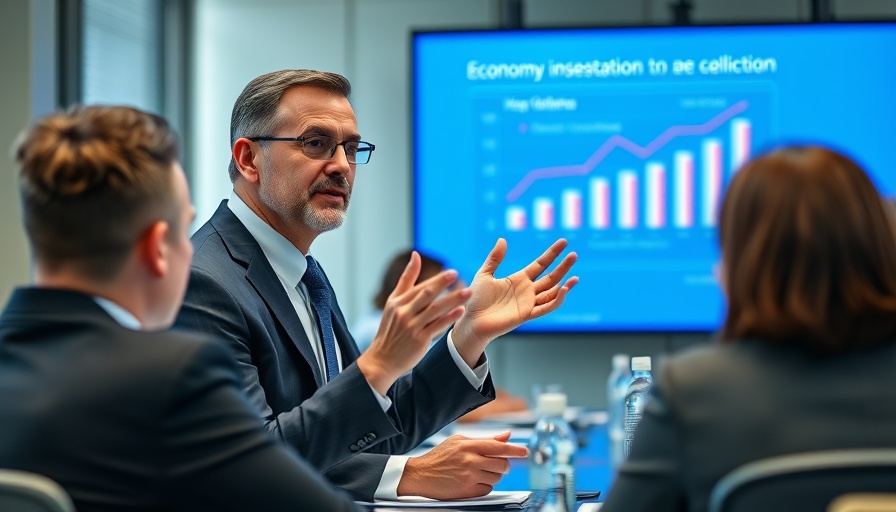
CEOs Voice Concerns at Yale Caucus Regarding Trump's Economic Direction
The recent Yale CEO Caucus held in Washington, D.C., showcased a gathering of some of the most notable business leaders in the United States, but their sentiments towards President Trump’s economic policies were strikingly negative. Amidst the backdrop of the president's potential re-election campaign, informal polling during the event revealed scant support for his economic agenda among the participants. The results raise significant questions about the direction of U.S. economic policy and the health of American capitalism in a changing global landscape.
The Impact of Fed Independence on Business Confidence
A key point of contention highlighted at the Caucus was the perceived erosion of Federal Reserve independence under the Trump administration. With 71% of CEOs voicing that the administration’s influence has harmed the Fed's autonomy, concerns emerged about the long-term impacts on trust within the financial markets. An influential CEO stated, "The stability and independence of the Fed are crucial for maintaining international confidence in the U.S. economy. If our leaders don’t respect this independence, it could unsettle our position globally." This sentiment echoes fears that political pressures could undermine economic growth, leading to volatile market reactions.
Tariffs: A Double-Edged Sword
The topic of tariffs also received significant attention, with 71% of polled attendees agreeing that current tariff policies have been detrimental to their businesses. Despite President Trump’s assertions that tariffs target foreign entities, the reality presented at the Caucus revealed domestic companies and U.S. consumers were absorbing the burdens. According to sources, 46% of attendees felt that domestic importers were footing the bill, pointing to a fundamental misalignment between policy intentions and actual economic realities.
The Competitive Landscape Against China
As the world watches the escalating economic rivalry with China, CEOs were asked whether American free-market capitalism could compete with the Chinese socialist market model, especially within the burgeoning AI sector. A resounding 73% answered affirmatively, reflecting confidence in America's innovative capabilities despite the current administration's policies. However, this optimism comes with a caveat: many business leaders expressed a sense of urgency in investing in domestic manufacturing and infrastructure, underscoring the critical need for strategic national policies beyond mere tariff alterations.
The Voices of CEOs: Scrutinizing Success
Attendees positively noted that the administration had bolstered U.S. manufacturing. However, when pressed for specifics, many preferred to couch their praises in ambiguity, hinting at private dialogues with the White House. A crucial reminder of the complexities involved emerged when one CEO remarked, “I appreciate some of his initiatives, yet I fundamentally disagree with the broader economic approach.” Such commentary demonstrates a dissonance that may ripple through the American business fabric if left unaddressed.
Looking Ahead: What This Means for Agile Leaders
The insights emerging from this CEO Caucus provide a critical lens for agile leaders and business process managers who must navigate these turbulent waters. As change accelerates in political and economic spheres, the ability to adapt swiftly and strategically has never been more vital. Agile leadership, characterized by flexibility and responsiveness to market changes, is essential for thriving amid ongoing national and global shifts.
In light of these discussions and findings, business decision-makers may want to rethink their engagement approaches around policies actively influencing their sectors. Engaging in supportive networks, advocating for policy shifts, and refining operational strategies will become integral actions as they chart their respective paths forward.
To explore more about how agile leadership can energize your organization amid evolving challenges, consider attending upcoming workshops and forums designed for business leaders like yourself. The balance within economic frameworks can shift rapidly; staying informed and proactive is essential for navigating these challenges.
 Add Row
Add Row  Add
Add 




Write A Comment